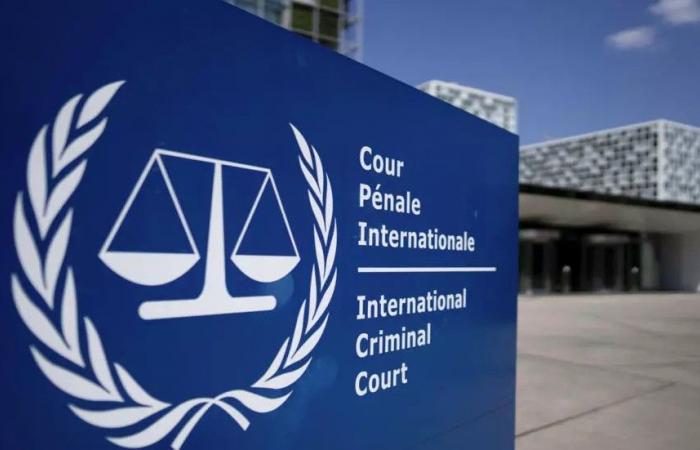This past year alone, Washington has vetoed four Security Council resolutions calling for a ceasefire in Gaza.
By MEE, November 20, 2024
The United States vetoed a draft United Nations Security Council resolution last Wednesday calling for a ceasefire in Gaza. The move marks the 49th use by the United States of its veto power against draft UN Security Council resolutions regarding Israel.
The draft resolution was introduced by the ten elected members of the Security Council and all members except the United States voted in favor.
The veto marks more than a year of U.S. diplomatic support for Israel in its war against Gaza, which continued last month with Israel's invasion of Lebanon.
However, this diplomatic support from Washington to Israel is not new and has continued on a bipartisan basis for decades.
In addition to providing approximately $3 billion in military aid each year, the United States is also Israel's main ally in international institutions and has often used its veto power over the Security Council to block diplomatic measures targeting Israel over their treatment of Palestinians.
Premier veto
According to the Jewish Virtual Library, the United States has already used its veto power 48 times against draft Security Council resolutions regarding Israel since it began using it in 1970.
The first, resolution S/10784, expressed deep concern “at the deterioration of the situation in the Middle East” and targeted Israeli aggression on the Lebanese border.
Authored by Guinea, the former country of Yugoslavia and Somalia, the United States was the only one to oppose the resolution. Panama abstained.
Several similar resolutions were also vetoed by the United States in subsequent years. In 1975, the year civil war broke out in Lebanon, resolution S/11898 called on “Israel to immediately renounce any military attack against Lebanon.” Again, the United States was the only one to vote against.
In 1982, a year that saw some of the most ferocious Israeli attacks on Lebanon, Spain introduced a draft resolution demanding that Israel “withdraw all military forces immediately and unconditionally to the internationally recognized borders of Lebanon” in a period of six hours. The United States vetoed it.
The United States opposed similar resolutions in 1985, 1986, and 1988. The Lebanese civil war ended in 1990, but Israel did not withdraw from the south of the country until 2000.
Jerusalem
The question of the final status of Jerusalem, which the Oslo Accords stipulated would only be discussed at the end of a possible peace agreement between Israel and Palestine, has long been the target of the US veto. UN.
Draft resolution S/12022, presented in 1976, called on Israel to protect the “Holy Sites under its occupation.”
The resolution declares itself “deeply concerned by the measures taken by the Israeli authorities which have led to the current serious situation, including measures aimed at changing the physical, cultural, demographic and religious character of the occupied territories.”
The United States was the only country to vote against the draft text.
In 1982, Morocco, Iran, Jordan and Uganda presented a draft resolution after an Israeli soldier fired on believers, killing at least two of them, in the Al Mosque complex. -Aqsa in Jerusalem.
This draft called on “the occupying power (Israel) to scrupulously observe and apply the terms of the Fourth Geneva Convention and the principles of international law regarding military occupation, and to refrain from any obstruction of the fulfillment of the established functions of the Islamic High Council in Jerusalem.”
Referring to the Al-Aqsa Mosque complex in Jerusalem's Old City, the text calls the site “one of the holiest places of humanity.”
The text also described the “unique status of Jerusalem and, in particular, the need to protect and preserve the spiritual and religious dimension of the city’s holy sites.”
Another draft text calling on Israel to respect Muslim holy sites was vetoed by the United States in 1986.
Palestine
In 1976, the United States opposed a resolution calling on Israel to withdraw from all Palestinian territories – in this case, the United Kingdom, Sweden and Italy abstained.
The draft text presented by Tunisia in 1980 underlined the “inalienable rights of the Palestinian people”. The United States voted against and the United Kingdom, France, Norway and Portugal abstained.
Resolutions condemning Israeli settlements (considered illegal under international law) were blocked in 1983, 1997 and 2011 only by the United States.
In 2004 and 2006, the United States refused to call on Israel to end the wars on Gaza, which killed hundreds of people.
Obama's last stand
In late 2016, after Donald Trump was elected but before he took office, the US administration of former President Barack Obama abstained in a vote on Israeli settlements.
It was the first time in forty years that a UN resolution condemning Israel had been adopted.
However, the United States used its veto power against a similar vote in 2011, and it was the only time that the Obama administration had exercised this power during its presidency.
Referring to the lack of visible progress in the peace process, US Ambassador to the United Nations Samantha Power said: “You cannot both defend the expansion of Israeli settlements and defend a viable two-state solution. which would end the conflict. A choice must be made between colonies and separation.”
Israeli Prime Minister Benjamin Netanyahu said the move was “shameful” on the part of the United States.
Trump attacks the UN
The previous Trump administration ushered in a new era of pro-Israel diplomacy at the UN.
In June 2018, the United States withdrew from the United Nations Human Rights Council, accusing it of having a “chronic bias” against Israel.
The Trump administration has also vetoed several UN resolutions regarding Israel.
On December 19, 2017, the United States opposed a draft UN Security Council resolution that rejected Trump's decision to recognize Jerusalem as the capital of Israel.
Several months later, in June 2018, the United States vetoed a measure drafted by Kuwait that condemned Israel's use of force against the Palestinians. Israeli forces killed dozens of non-violent protesters in Gaza during the March of Return demonstrations.
As in many other cases, the United States was the only one to oppose the resolution.
Israel's war on Gaza
On October 7, 2023, Hamas and other Palestinian armed groups in Gaza launched a surprise attack on southern Israel, killing approximately 1,140 people and taking 240 others hostage.
Israel responded with all-out war and launched a violent aerial bombardment offensive, followed by a ground invasion of Gaza. To date, Israeli forces have killed more than 44,000 Palestinians, according to the official toll released by the Palestinian Ministry of Health.
However, other conservative estimates put the death toll much higher. A study published in the journal Lancet estimates that the death toll could exceed 186,000 people.
Since the start of the war, Security Council members have attempted to introduce resolutions calling for a ceasefire and an end to the fighting in Gaza.
However, these efforts have been repeatedly blocked by the United States. Since the start of the war, Washington has blocked four different resolutions calling for a ceasefire.
Additionally, the United States blocked a resolution to recognize Palestine as a full member of the United Nations.
Many world leaders have denounced U.S. efforts to block a ceasefire call in the international administration, and Washington's Western allies have also expressed regret over the failure to adopt these measures.






